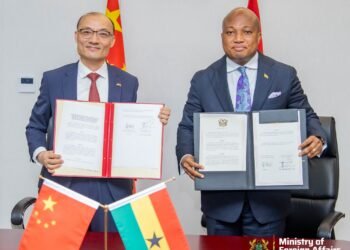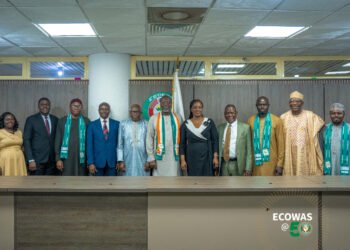The United States and Israel have approached officials from three East African governments to explore the possibility of resettling displaced Palestinians from Gaza.
According to American and Israeli sources, discussions have been initiated with Sudan, Somalia, and the self-declared independent region of Somaliland as part of President Donald Trump’s proposed postwar plan.
The move reflects Washington and Tel Aviv’s determination to advance a resettlement strategy that has been widely condemned and raised serious legal and humanitarian concerns. Given that all three locations face economic hardship and, in some cases, ongoing conflicts, the proposal casts doubt on Trump’s vision of relocating Gaza’s population to a “beautiful area.”
Officials from Sudan have already rejected the proposal, while authorities in Somalia and Somaliland have stated they are unaware of any such discussions.
Under Trump’s plan, Gaza’s more than 2 million residents would be permanently relocated. He has proposed that the U.S. take control of the territory, oversee a prolonged reconstruction process, and develop it into a major real estate project.
What was once considered a fringe idea by Israel’s ultranationalists has now gained mainstream traction. Since Trump introduced the concept at a White House meeting last month, Israeli Prime Minister Benjamin Netanyahu has praised it as a “bold vision.”
However, Palestinians in Gaza have outrightly rejected the plan, dismissing Israeli assertions that any departures would be voluntary. Arab nations have strongly opposed the initiative, instead proposing an alternative reconstruction plan that would keep the displaced population within Gaza. Human rights organizations have also warned that any forced or coerced relocation could amount to a war crime.
Despite mounting opposition, the White House has stated that Trump “stands by his vision.” American and Israeli officials, speaking on condition of anonymity, confirmed outreach efforts with Somalia, Somaliland, and Sudan. However, the extent of progress and the level at which these discussions took place remain unclear.
Outreach and Potential Incentives
Separate negotiations between U.S. and Israeli representatives and the three African entities reportedly began last month, just days after Trump and Netanyahu publicly floated the resettlement plan. Israel is believed to be spearheading these diplomatic efforts.
Israel and the U.S. could offer financial aid, security support, and diplomatic incentives in exchange for cooperation. This approach mirrors Trump’s earlier success with the Abraham Accords, a series of normalization agreements between Israel and four Arab states.
The White House has declined to comment on the ongoing discussions, and neither Netanyahu’s office nor Ron Dermer, the Israeli minister overseeing postwar planning, has issued a statement.
However, Israeli Finance Minister Bezalel Smotrich, a proponent of “voluntary” Palestinian emigration, recently confirmed that Israel is actively identifying potential host countries. He also disclosed plans to establish a “very large emigration department” within the Defense Ministry.
The Nations Under Consideration
Sudan was among the four nations that agreed to normalize relations with Israel under the Abraham Accords in 2020. In return, the U.S. removed Sudan from its list of state sponsors of terrorism, granting the country access to international loans and improving its global standing.

However, Sudan has since been engulfed in a brutal civil war between government forces and the paramilitary Rapid Support Forces (RSF). The conflict has resulted in mass atrocities, including ethnically motivated killings and sexual violence, prompting the United Nations and human rights organizations to call for an investigation into alleged war crimes.
Given the ongoing instability, Sudan is an unlikely resettlement destination for Palestinians. Nevertheless, the U.S. and Israel could leverage incentives such as debt relief, military aid, and diplomatic backing to persuade Sudanese authorities to reconsider.
At a recent Arab League summit in Cairo, Sudanese military chief Gen. Abdel-Fattah Burhan reaffirmed his country’s stance, declaring that Sudan “categorically rejects any plan that aims to transfer the brotherly Palestinians from their land under whatever justification or name.”
Somaliland, an unrecognized breakaway region of Somalia with a population of over 3 million, declared independence more than 30 years ago. However, the international community, including Somalia, still considers it part of Somali territory.
Somaliland’s new president, Abdirahman Mohamed Abdullahi, has prioritized gaining international recognition for the region. A U.S. official involved in the outreach effort confirmed that “a quiet conversation with Somaliland” is taking place on multiple issues, including how the territory could assist the U.S. in exchange for diplomatic recognition.
While Somaliland has historically expressed solidarity with the Palestinian cause, the possibility of formal recognition from Washington could serve as a compelling incentive for its leadership to reconsider its position.
Somalia has also been a vocal supporter of the Palestinians, often hosting peaceful protests on its streets in support of them. The country joined the recent Arab summit that rejected Trump’s plan and seems like an unlikely destination for Palestinians, even if they did agree to move.
READ ALSO: NUGS Lauds 2025 Budget but Urges Commitment to Educational Infrastructure




















